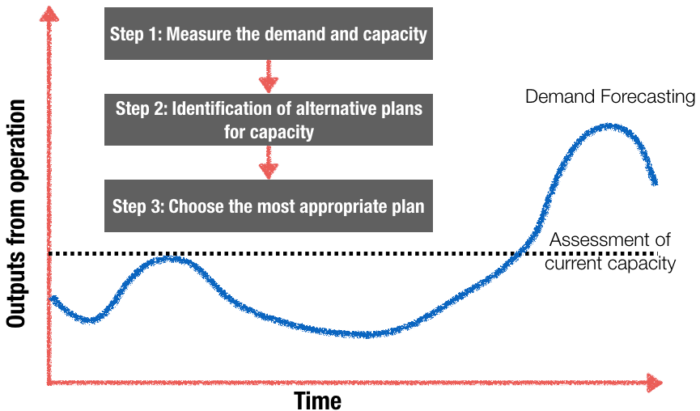Managing is one of the most important tasks in all companies, regardless of their type, size, market, or industry. As an entrepreneur, you will also need to practice management. Understanding different types of management tasks is critical in helping managers reach and set realistic company goals, which are essential for company success and growth.
Here, you can find the 13 most important management tasks.
Sometimes, entrepreneurs will simultaneously work on entirely different tasks, called management tasks, in addition to their entrepreneurial duties. That means they must also have some managerial skills to implement these tasks successfully.
Remember, you are building a business, not the product. Here is one list of the most important managerial tasks.
📖 Key takeaways
- Managers must accomplish many tasks in their daily work routine to bring effectiveness and efficiency to their company.
- From coaching and leadership to the representative role, managers are playing a critical role in ensuring achieving business goals and overall achievements of the company.
- We are covering 13 different management tasks that are most important for all managers to successfully manage their companies.
1. Coaching and Leadership

One of the most important management tasks is coaching and leadership.
Managers must lead or guide each team member, showing them the organization’s right direction. They are not just instructors and trainers but also critical in understanding emotional intelligence (EQ) to maximize team members’ performance and support their professional development.
The goal of the leadership function is to develop a business with high business potential energy through all organizational members by actively being involved in the hiring process, facilitating performance evaluations, addressing performance challenges, and asking questions from team members to foster an environment of growth and learning.
Because one of your management roles is to ensure strong leadership in your business, you must always look to improve your own leadership skills.
Related: 8 Team Leader Skills for Your Business Growth
2. Strategic and Operational Planning

Planning is a management function and one of managers’ most important everyday tasks. Understanding the four basic functions of management—planning, organizing, leading, and controlling—is crucial as nearly every action or process in management can be categorized into these functions.
Top management plans the company’s future and considers all future activities that organizational members must accomplish. Thus, planning becomes one of the most important management tasks.
This planning process is a managerial role for developing and implementing a strategic plan (strategic planning), a high-level or top management task. A strategic plan defines your company’s direction and everything related to allocating resources to follow this direction. It involves setting long-term goals, analyzing internal and external factors, and creating plans to achieve them.
On the other hand, operational planning focuses on short-term goals and activities needed to implement the strategic plan. This includes identifying specific actions, timelines, and responsibilities for achieving the overall objectives set in this plan.
Scheduling, for example, is a crucial aspect of operational planning. You and your managerial team must determine the actions needed to carry out a company’s day-to-day operations and how they will contribute to its overall success.
If managers were to take their time to plan their meetings or appointments, they can’t do away with scheduling their activities. Because of this, a successful manager should invest in online scheduling platforms.
When you have a single place to view your schedules and important events, you will know how to go about your day, allowing you to perform better as a manager.
3. Change Agent

In reality, you can’t find even one day in your business without changes.
A successful change process will require strong management skills of change agents to initiate and facilitate it.
If you want to achieve the desired results, you must plan and manage the entire change process, incorporating operational planning to ensure day-to-day operations align with strategic goals. This involves the contribution of department managers, first-level leaders, and project managers, utilizing tools like project schedules, timelines, RACI charts, swimlanes, and Gantt charts.
So, as a manager, you must ensure that your company will continue to achieve its current level of success with current human potential and prepare to implement changes for improving performance that will ensure future success.
Related: How to Implement Organizational Change Process?
4. Forecasting the Future

Forecasting is another managerial task that provides a picture of how the future will look from the business perspective. It includes predicting how much revenue the sales team might expect to generate in the current year.
This managerial task is very important because if you implement it correctly, you will have a clear vision for the future, which will help you better prepare for that future.
For example, the right sales forecast can help you set SMART goals, monitor progress towards them, and make necessary changes to meet them.
Forecasting also helps you easily identify potential risks and opportunities for the future.
Remember, forecasting is an ongoing process because market and industry conditions, as well as customer behavior, can change quickly. So, as a manager, you should always stay updated on important industry trends and regularly review and modify your forecasts accordingly.
5. Motivate Your Team Members
Employees must be motivated if they want to get the best results from their work. You can’t find a person who will work for nothing.
All employees have motivational factors that will lead them to bring better results to your company. But, these motivational factors are different for each employee.
One management task is optimizing motivational processes and maximizing employees’ working performances.
So, creating and spreading motivation is another managerial task.
You can read more about psychologist’s theories of motivation that drive human behavior and the complexities of today’s employee motivation.
6. Organizing management tasks
Organizing is also one of the management functions aside from planning and motivating. Without some level of organization, your company will exist in chaos.
Businesses with more employees will have different ideas, ways of doing things, and personal habits.
Organizing is a management task that will make all organizational differentiation work as one whole – the company. It plays a critical management role in simplifying your business processes, ensuring that each function occurs repeatedly, usually in sequence and almost always overlapping with each other, to achieve efficiency and effectiveness in achieving the company’s goals.
7. Operations management tasks

As a manager, you must continuously evaluate and improve your business’s operational processes to improve efficiency, quality, and customer satisfaction.
Also, you must utilize key performance indicators (KPIs) to measure progress toward goals and modify strategies as necessary.
8. Understanding finances
Managers must create and manage the organization’s budget to ensure financial stability and resource availability for priority initiatives.
As a manager, you must regularly review your business’s financial statements. This is an important task because it allows you to assess your business’s financial health and make the right financial decisions.
9. Staffing Employees and Management Team

Staffing is another managerial task. Because organizational members are the most valuable resources, selecting the right candidates and potential management team members becomes crucial for you.
If you succeed in selecting the right staff, you will ensure a successful company’s future operations. A better team means a higher business potential energy in your company.
Remember that managers participate in staffing, and in such a way, they ensure that the company’s operational and budget planning aligns with the strategic goals.
10. Control as a management task
Controlling is also one of the core managerial functions, such as planning, motivating, organizing, and staffing.
This task will help you discover possible mistakes and failures in your plans according to the actual results of implementing them.
Your goal must be to minimize the deviation between plans and reality.
In this context, strategic planning is crucial as it involves setting long-term organizational goals, assessing resources, and planning for resource allocation. Control function is key in monitoring and adjusting these strategic plans to ensure they align with the overall company’s objectives.
11. Negotiation

Another important management task is negotiation. There are two types of negotiations: internal and external negotiations.
You will use internal negotiation when you negotiate with entities inside the company, and external negotiation is when you negotiate with external entities that are outside your company, such as suppliers, customers, and the community.
Managers’ better negotiation skills will increase the company’s overall business potential energy.
12. Delegation
Successful managers know how to delegate specific tasks to the right people, emphasizing the importance of assigning tasks that align with each team member’s competencies and roles.
We cannot find the perfect manager. Delegating specific tasks to team members differentiates successful managers from average and below-average executives.
The delegation process involves combining different knowledge and experiences to accomplish better tasks.
13. Representative role as a management task

The last but not the less important managerial task is implementing the representative role of the company.
The managers represent the companies that they manage.
How they look, how they talk, how they walk, and how they think will build the picture of the company in the eyes of the people from outside the enterprise.





